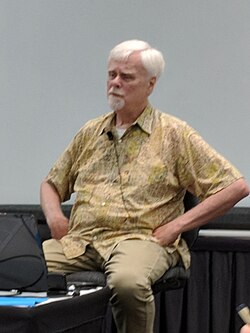David D. Burns Quote
Golden opportunity to learn to cope with criticism and anger effectively. This came as a complete surprise to me; I hadn't realized what good fortune I had. In addition to urging me to use cognitive techniques to reduce and eliminate my own sense of irritation. Dr. Beck proposed I try out an unusual strategy for interacting with Hank when he was in an angry mood. The essence of this method was: (1) Don't turn Hank off by defending yourself. Instead, do the opposite—urge him to say all the worst things he can say about you. (2) Try to find a grain of truth in all his criticisms and then agree with him. (3) After this, point out any areas of disagreement in a straightforward, tactful, nonargumentative manner. (4) Emphasize the importance of sticking together, in spite of these occasional disagreements. I could remind Hank that frustration and fighting might slow down our therapy at times, but this need not destroy the relationship or prevent our work from ultimately becoming fruitful. I applied this strategy the next time Hank started storming around the office screaming at me. Just as I had planned, I urged Hank to keep it up and say all the worst things he could think of about me. The result was immediate and dramatic. Within a few moments, all the wind went out of his sails—all his vengeance seemed to melt away. He began communicating sensibly and calmly, and sat down. In fact, when I agreed with some of his criticisms, he suddenly began to defend me and say some nice things about me! I was so impressed with this result that I began using the same approach with other angry, explosive individuals, and I actually did begin to enjoy his hostile outbursts because I had an effective way to handle them. I also used the double-column technique for recording and talking back to my automatic thoughts after one of Hank's midnight calls (see Figure 16–1, page 415).
Golden opportunity to learn to cope with criticism and anger effectively. This came as a complete surprise to me; I hadn't realized what good fortune I had. In addition to urging me to use cognitive techniques to reduce and eliminate my own sense of irritation. Dr. Beck proposed I try out an unusual strategy for interacting with Hank when he was in an angry mood. The essence of this method was: (1) Don't turn Hank off by defending yourself. Instead, do the opposite—urge him to say all the worst things he can say about you. (2) Try to find a grain of truth in all his criticisms and then agree with him. (3) After this, point out any areas of disagreement in a straightforward, tactful, nonargumentative manner. (4) Emphasize the importance of sticking together, in spite of these occasional disagreements. I could remind Hank that frustration and fighting might slow down our therapy at times, but this need not destroy the relationship or prevent our work from ultimately becoming fruitful. I applied this strategy the next time Hank started storming around the office screaming at me. Just as I had planned, I urged Hank to keep it up and say all the worst things he could think of about me. The result was immediate and dramatic. Within a few moments, all the wind went out of his sails—all his vengeance seemed to melt away. He began communicating sensibly and calmly, and sat down. In fact, when I agreed with some of his criticisms, he suddenly began to defend me and say some nice things about me! I was so impressed with this result that I began using the same approach with other angry, explosive individuals, and I actually did begin to enjoy his hostile outbursts because I had an effective way to handle them. I also used the double-column technique for recording and talking back to my automatic thoughts after one of Hank's midnight calls (see Figure 16–1, page 415).
Related Quotes
About David D. Burns
Burns popularized Albert Ellis's and Aaron T. Beck's cognitive behavioral therapy (CBT) when his books became bestsellers during the 1980s. In a January 2021 interview, Burns attributed his rise in popularity and much of his success to an appearance in 1988 on The Phil Donahue Show, to which he was invited by the producer after helping her teenage son with depression.
